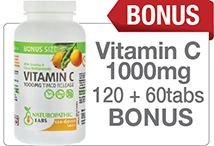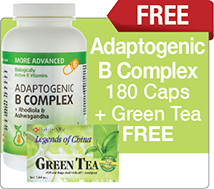Crohn's Disease
Updated Nov. 25th, 2022
Crohn's Disease generally involves inflammation of the small intestine but it can affect any part of the digestive tract, along the entire tube from the mouth to the anus. It is one of the two main diseases covered under the term "Inflammatory Bowel Disease" (IBD). The gold standard diagnosis of Crohn's requires a colonoscopy, in which "skip lesions" are seen. These are deep ulcerations of the intestine that affect its entire thickness. As these ulcerations heal, they are replaced with scar tissue, which can lead to a number of complications.
Signs and Symptoms
Crohn's has symptoms that are very similar to colitis, including bouts of abdominal pain, cramping, diarrhea, bleeding and mucous in the stools as well as vomiting. For more information on colitis, please click here. These times of "flare" can be debilitating due to pain and frequent need to visit the washroom. They can also involve symptoms that aren't directly associated with the gut such as: fever, arthritis, skin rashes, fatigue, joint aches, and difficulty concentrating. Diagnosis of Crohn's disease must rule out other causes of cramping and diarrhea including acute infections, Colitis and Irritable Bowel Syndrome (IBS).
Complications
Because the inflammation of Crohn's involves the entire thickness of the digestive lining, it can cause holes to form in the intestine, which can then create fistulas (improper connections) between the digestive tract and other organs. This can create any number of problems, including anemia, intestinal blockage, and organ damage. The scar tissue formed by healing the full-thickness ulcers can also cause constrictions in the intestines known as "strictures" that can prevent the proper flow of food and feces through the digestive tract. These regions of scarring cannot absorb nutrients or water like the normal digestive tract, which eventually results in weight loss and nutrient deficiencies as well.
Causes and Risks
There is no well-established cause for Crohn's disease, although theories still abound. One possible underlying cause of Crohn's disease may be an autoimmune reaction. This is when the body's immune system accidentally attacks its own cells. Other causes include low dietary fibre, high dietary sugar and refined carbohydrate intake, food allergies, stress, unresolved emotional conflicts, parasitic infection and antibiotic use. Also, smokers are twice as likely to be affected as non-smokers.
Conventional Treatment
Conventional treatment of Crohn's disease involves the use of anti-inflammatory and immunosuppressant medications. Although these medications decrease the symptoms, they do not address the root cause of the problem. They may also contribute to nutrient deficiencies.
Signs of nutrient deficiencies can include: clouded thinking, dizziness, hair loss, brittle hair and nails, flaking skin, and fatigue. Some medications have side effects associated with suppression of the immune system such as increased risk of bacterial and viral infections.
The best and only way to relieve symptoms of Crohn’s disease is by making alterations to your diet. You can start with a digestive cleanse, like a liquid diet, consisting of healthy fruit and vegetable juices. It’s important that these are alkalinizing juices such as grape, carrot, apple and pineapple. The diet should at least be a low residue diet. This cleanse will also allow you to eliminate processed and refined foods as well as any foods you are sensitive to. After the initial cleansing period, you can begin to add foods back into your diet – focus on including water-soluble fibre, vitamins and minerals found in complex carbohydrates. Drinking plenty of water will help to flush the intestines.
Consume fermented products like yogurt, kefir, quark, buttermilk, natural cheeses, tempeh, saurkraut to replenish the friendly bacteria that assist with nutrient digestion. If dairy is a sensitivity, avoid fermented dairy as well.
Food to consume: predominantly vegetarian diet, raw vegetables and fruits, whole grains, brown rice, potatoes, carrots, turnips, soy products and green drinks. Use water-soluble fibres like chicory root, oat bran or apple pectin. Broil or bake fish and meats instead of frying. Steam vegetables lightly.
Mental-Emotional Connection
Many colitis sufferers will mention a stress, worry, and mental-emotional connection to their symptoms. Tackling the emotional aspects of colitis should also be a priority. Reducing stress and increasing exercise promotes proper bowel functioning. For more information on stress reduction, please click here. Abdominal massage and hydrotherapy can be helpful in the healing stages of colitis.
Supplements for Colitis
There exists a wide variety of supplements that can benefit colitis patients. It is very important to time them appropriately. Supplements that are beneficial during remission can be problematic during a flare. In general, treatments targeted at reducing Leaky Gut, can also significantly help to reduce colitis flares. See below for a step-by-step guide at repairing the gut lining.
REDUCING GUT INFLAMMATION
There are a number of supplements that can reduce gut inflammation, but some of the best are:
Fish Oil
This oil is rich in omega 3 fatty acids, and has been shown to reduce inflammation, improve mood, thin the blood, and reduce blood pressure. For more information on fish oil, please click here.
Boswellia
This herb is renowned for its ability to reduce systemic inflammation in the body. Although it has been most thoroughly researched for the treatment of arthritis, its use can be expanded to other inflammatory conditions. For more information on Boswellia, please click here.
Curcumin
Another herb that has been established for its anti-inflammatory properties, Curcumin (tumeric) can be added to your cooking or supplemented directly as a great way to reduce any inflammation in your gut. For more information on curcumin, please click here.
HEALING THE GUT
There are a number of supplements that can help to reduce inflammation and speed the healing of the gut lining.
L-Glutamine
This amino acid can be considered the single most important supplement for restoring the integrity of the gut lining. It is a major food source for the enterocytes, and providing food allows them to replicate and heal regions of damage. For more information on Glutamine, please click here.
DGL (Deglycyrrhizinated Licorice)
Licorice is a soothing and healing herb that can soothe the intestinal lining directly and also acts to regulate the immune system and help calm any ongoing inflammation. For more information on DGL, please click here.
Demulcents
This class of herbs coat and protect the intestinal lining from any further damage. By protecting the lining, they give the enterocytes time to heal. Some examples are marshmallow, and slippery elm. For more information on marshmallow, please click here. For more information on slippery elm, please click here.
Preventing a Repeat Problem
Once the gut has been repaired, it is important to help it maintain its integrity after this intensive healing regime. One important means of doing this is by supplementing a probiotic. Probiotics help the body to properly digest food, and also protect against colonization with "bad" bacteria and yeast. They can also help to reduce the immune response to gut contents, and thus help to keep the immune system in check. For more information on the benefits of probiotics, please click here. In addition to preventative supplementation, diet and lifestyle changes are essential to maintaining periods of remission for as long as possible. Reducing or better coping with stress, eating well, and exercising are all essential to maintaining health in those suffering from Crohn's.























I like the article on Crohns as I have Crohns and struggle sometimes
This is very informative and looking forward to trying some of the supplements they are suggesting
Lots of really good information, I didn’t know know there was so much information on the site. I normally just order my supplements
Hello Tammy,
We're so glad you found our articles! They're a great way to learn more about the supplement's you're taking, any health concerns you have or even to find new, healthy recipes! Hope you enjoy them and happy reading!
Stay healthy & well!